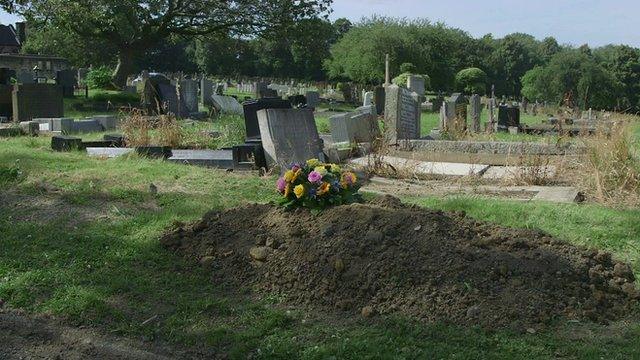Paupers' funerals cost UK councils nearly £5.4m in a year
- Published
- comments
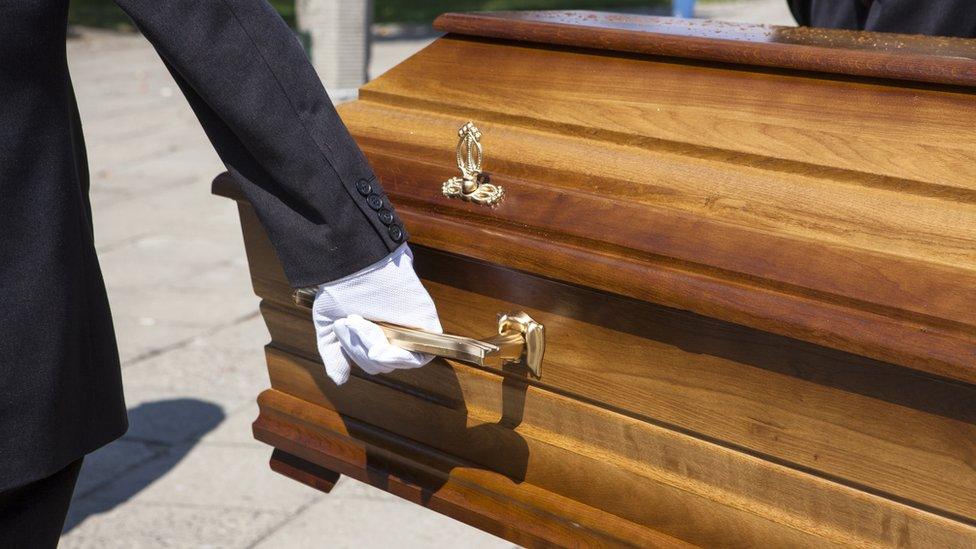
Councils are required by law to bury or cremate the deceased if funeral arrangements have not been made
Councils across the UK spent nearly £5.4m on "paupers' funerals" last year, it has been revealed.
A Freedom of Information request, by insurance company Royal London, found 275 local authorities spent £5,382,379 on public health funerals in the 12 months up to April 2018.
More than 3,800 of the funerals, for people who have died alone, in poverty or without relatives, were held.
The Local Government Association said the funerals were stretching budgets.
Birmingham's local authority spent the most, with public health funerals costing the city council £990,437.
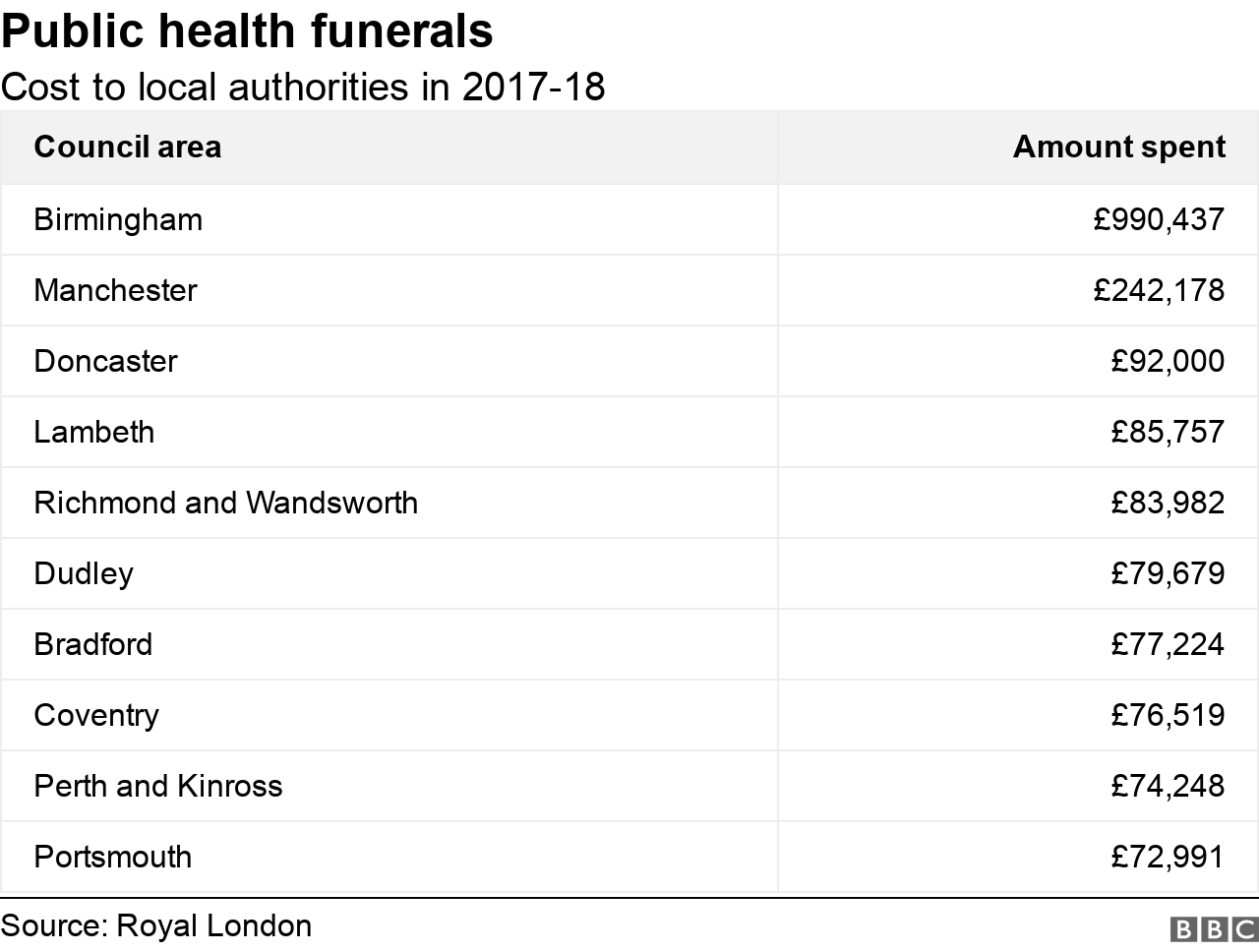
The city paid for 395 funerals in 2017-18 - about one council-funded funeral for every 22 deaths, which was the third highest rate in the UK.
A Birmingham City Council spokeswoman said: "As the largest local authority in the UK, Birmingham's spend on public health funerals will inevitably be higher when compared to other cities, reflecting the population it serves."
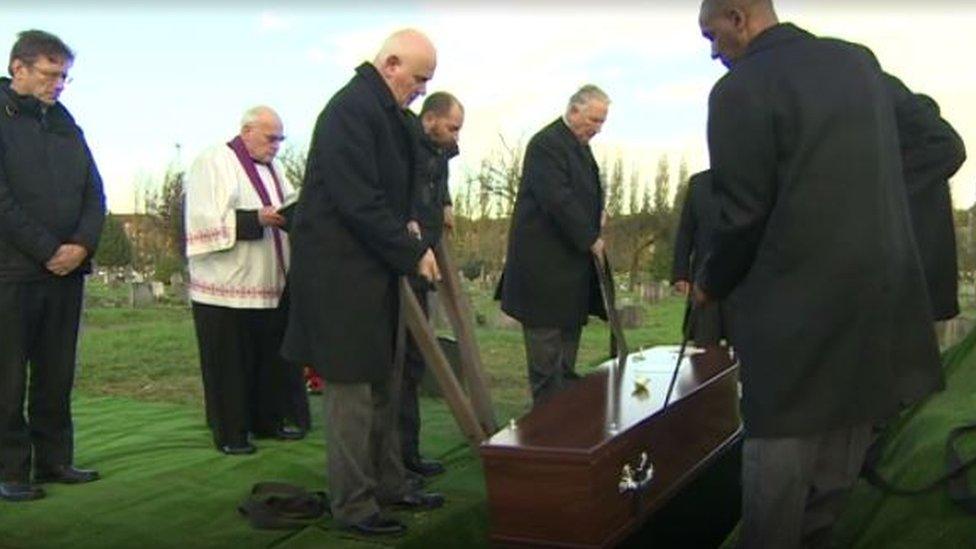
Public health funerals take place without flowers or transport

What are public health funerals?
Local authorities are required by law to arrange a public health funeral when no suitable arrangements have been made for a deceased person in their area.
The services, known as a "pauper's funeral", typically include a coffin and the services of a funeral director.
Family and friends can attend but the "no frills" service does not include flowers or transport for family, and some council burials take place in an unmarked shared grave.

Waltham Forest in east London had the highest rate of public health funerals per death with one for every 17 deaths that year, followed by Hackney, also in east London, with one for every 21 deaths.
The funerals cost councils across the country an average of £1,403 last year.
Birmingham City Council cabinet member for health and social care councillor Paulette Hamilton said: "Everybody deserves a dignified funeral, and it is really important as a city when someone dies we give them the best possible send-off that we can give to ensure they come to a dignified end."
She said the number of public health funerals in the city was "disturbing" and symptomatic of "high inequality" in the city.
Ms Hamilton said she hoped the statistics for the current year would show the numbers had fallen. But she added there were "more people slipping into that poverty trap".
"So it is important we have that resource there to bury them," she said.
You may also be interested in:
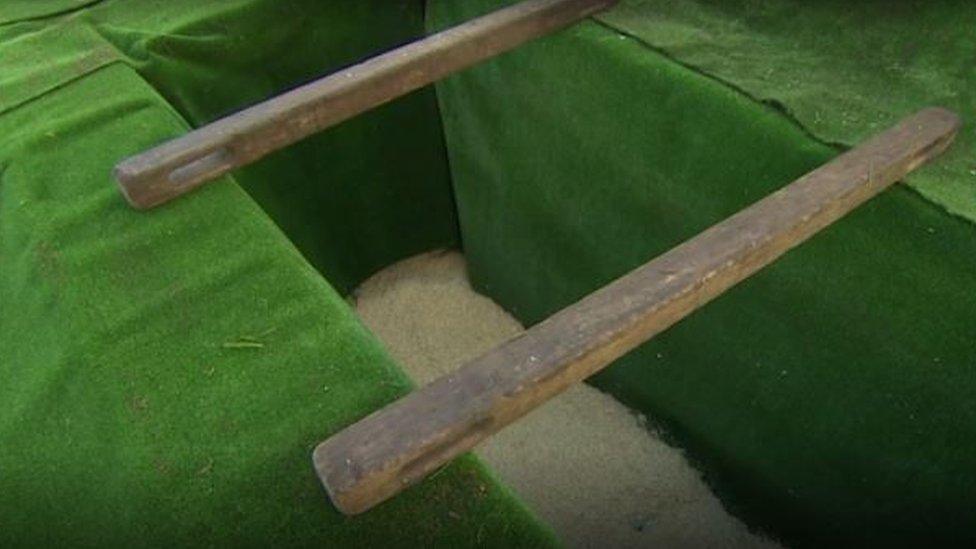
Some councils bury the deceased in unmarked graves
The amount spent by local authorities on public health funerals in 2017-18 increased by 3.5%, compared with the previous year, based on those councils that provided figures for both years.
Cliff Rich, deputy chief executive of charity Contact the Elderly, said the traditional concept of families living close together was "fading" and the problem of loneliness and isolation among older people was "only going to worsen".
"I don't believe that we are a less caring society but that we are a busy society and that the idea of community is not as strong as it once was," he said.
"But there are small things that each of us can do to make a real difference."
He said volunteering for a charity such as his organisation could have "a huge impact, help build community bonds and tackle isolation".
The Local Government Association said the figures portrayed a worrying picture of isolation and loneliness across the country.
A spokesman said: "The increase in these funerals are an extra pressure on over-stretched council budgets which pay for them.
"Councils are facing a funding gap of £3.1 billion by 2020. The figures also mask the number of funerals paid for by the NHS when people die in hospital."
- Published22 October 2018
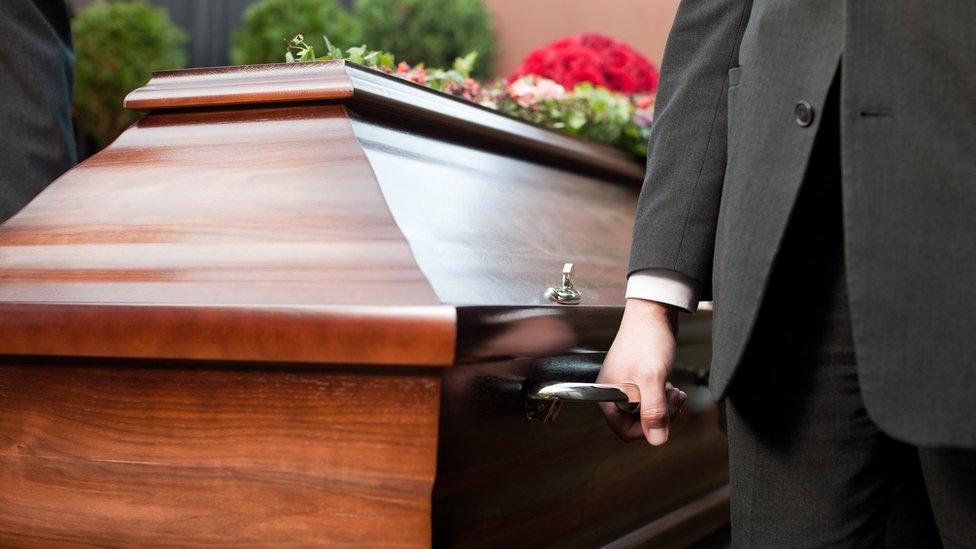
- Published19 October 2018
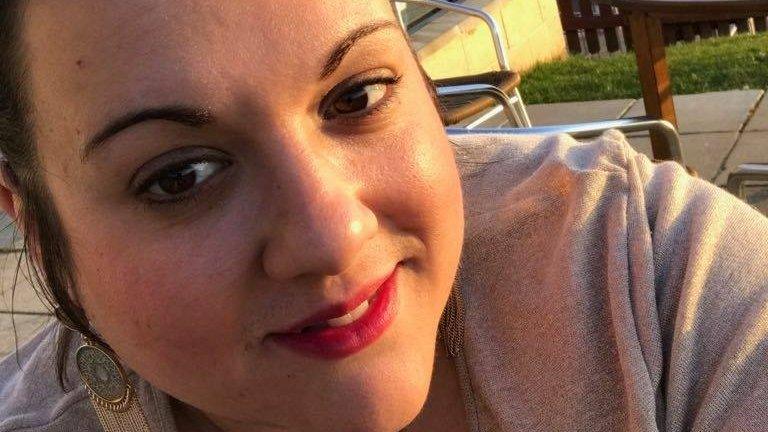
- Published17 January 2017
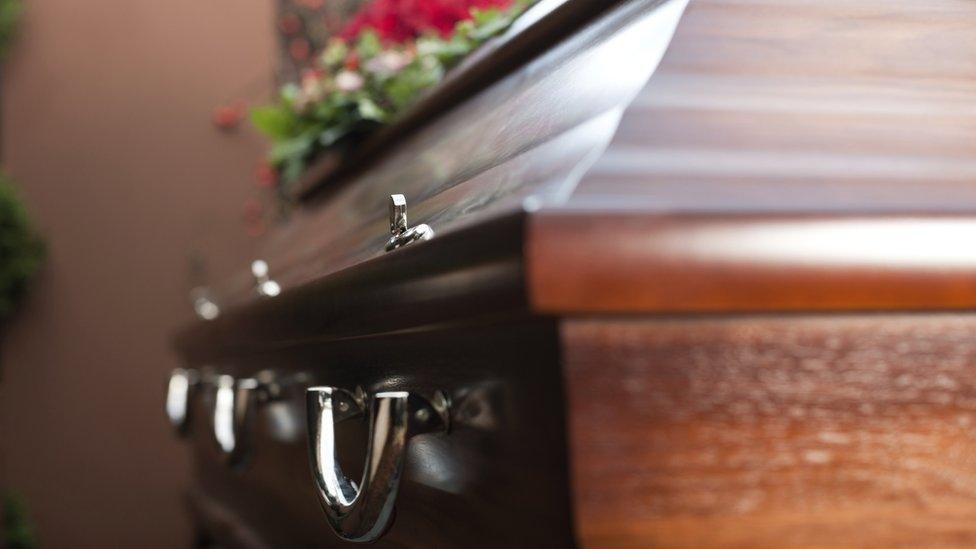
- Published30 November 2015
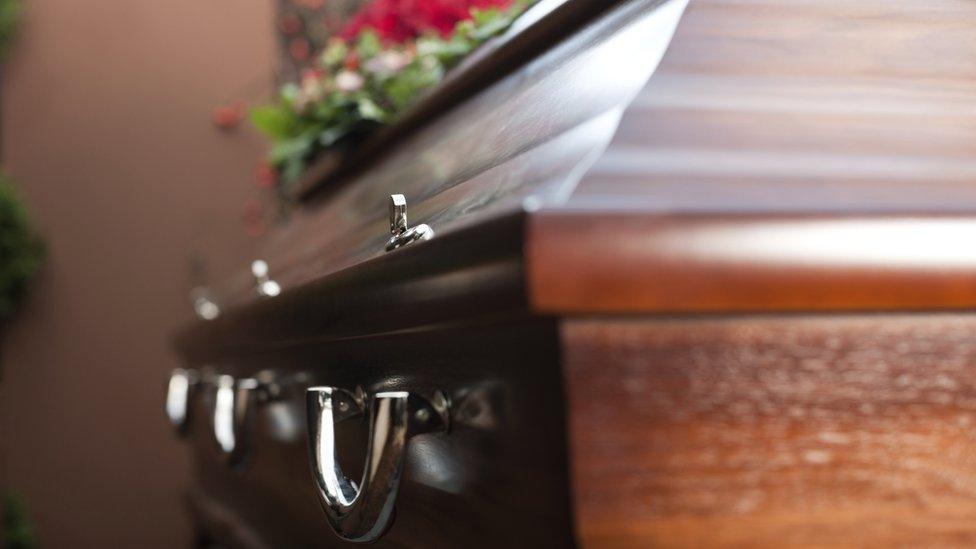
- Published30 November 2015
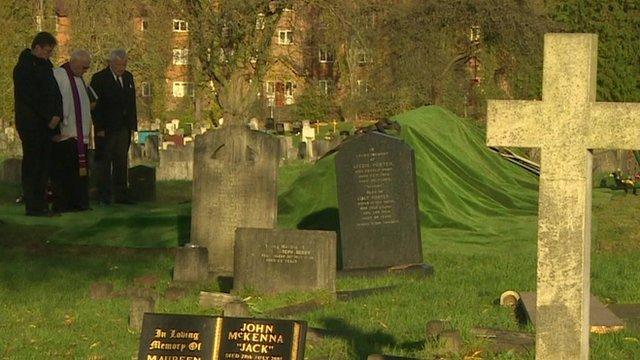
- Published13 August 2014
